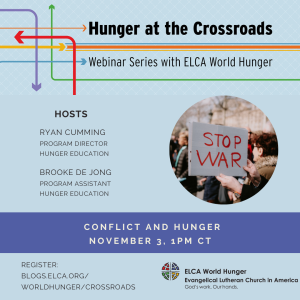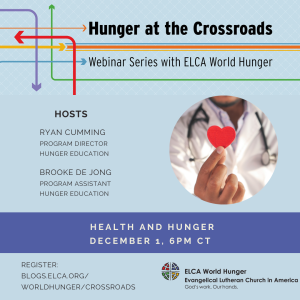Prepare (This section is preparation for the leader, not content meant for the group.)
In this passage, we find the Israelites deep in the Babylonian Exile. The Assyrians had conquered the northern kingdom of Israel. The southern kingdom, Judah, held out a little longer. However, the Babylonians, under Nebuchadnezzar, came along and conquered the Assyrian territory and the remaining Israelite lands. This was a huge blow to the Israelites. The temple was destroyed, the walls of Jerusalem lay in ruins, and the people were forced to leave the promised land.
As the years dragged on in exile, the generation that remembered Jerusalem was getting older. The people had been waiting for deliverance a long time. They were hoping for a leader like Moses to come and lead them back to the promised land. They were waiting for God to punish the Babylonian king like Pharaoh with the 10 plagues. But it still hadn’t happened. Those who remembered Jerusalem were fading. The community was wondering if God was still with them, or even strong enough to save them.
These words from Jeremiah were reassurance that God was watching over them right where they were, even in exile. God wanted them to thrive right where they were – building homes, starting families, growing gardens. This did not mean they should stop longing for or expecting liberation, which would one day come. But thriving in exile was itself an act of resistance and faith; preparation for the liberation for which they longed.
Opening Exercise
Think of a time when you were impatient for something to happen. Has it happened? How long did it take?
Text Read Aloud
Thriving in Exile
The people of Israel were tired of living in Babylon. They had been forced to leave the promised land behind when King Nebuchadnezzar swept through with his army. Babylon was a wealthy kingdom, but the Israelites lived on the margins: powerless, poor, and heavily taxed. They wanted to go home.
Jeremiah was a prophet, a messenger sent to take God’s words to God’s people. When they received his letter, they probably hoped for news like Moses once gave their enslaved ancestors in Egypt—news like, “Liberation is at hand! Keep your shoes on, don’t bother baking raised bread, be ready to go!”
But what does Jeremiah tell them? Build houses—and make them homes. Plant seeds and watch them grow. Create families and new generations. Even pray for the city where they live!
This message of putting roots down in Babylon probably felt jarring, like a betrayal of the God who brought them to the promised land, or a concession to the oppressor who had taken it away. Yet God isn’t telling them to give in or become Babylonians. God wants them to thrive as Israelites, investing in their community so that when liberation comes, they will be ready to take their place as God’s beloved people.
Thriving in exile is an act of faith, and that same faith shows up today in communities still fighting to belong. Here in the U.S., October 11th is National Coming Out Day. In Atlanta, where I live, this is also Pride weekend. There will be parades, festivals, and marches celebrating the diversity of the LGBTQIA+ community. As an ally, I feel lucky that the parade passes right by our church’s front doors. We get to support our queer members and neighbors as they celebrate who they are.
However, this year feels different. Local organizations remain enthusiastic, but we expect fewer floats with corporate sponsors amid increasing political pressure. While some leaders stay supportive, others are pushing for laws that would harm our queer neighbors, especially those in the trans community. Even as the trans community grows in strength and visibility, so too does the backlash.
I don’t know what it feels like to come out, but after listening to the stories of queer friends, authors, and speakers, I know it takes courage, even in a supportive environment. And it’s only the beginning of learning how to embody your truest self in public. Finding safety, community, and family can be a lifelong journey.
Hopefully this backlash will be short-lived, and our society will continue toward full rights for all people. Still, this kind of ‘exile’ can feel endless to our neighbors experiencing oppression, much like the Israelites in Babylon. The good news, as Jeremiah reminds us, is that God’s faithfulness doesn’t dependent on the whims of empire. God has not forgotten God’s promises, and the future is in God’s hands.
This doesn’t mean we stop longing or working for liberation. Thriving itself is an act of resistance. Even when the promise of a world where all people are equally valued, supported, and celebrated feels far away, build community wherever you can. Create a home and fill it with family, biological or chosen. Invest in your education or training in the field of your dreams. Plant seeds and watch them grow. Live into God’s vision for your life, regardless of what the society says you deserve.
And, if you’re an ally like me, keep learning about the issues your queer family members, friends, and neighbors face. Ask them how you can help make God’s promises real, so that together we’re ready to take our places as God’s beloved people.
Reflection Questions
- In the Jeremiah passage, what are the ways God tells the Israelites to invest in their future in Babylon?
- Why would Jeremiah’s words be difficult for the Israelites to hear?
- This reflection focused on Queer communities in the US. What other groups do you know of today who are experiencing oppression? What barriers do they face to living the full lives God intends for them?
- The last, and perhaps most difficult, instruction God gives the Israelites is to pray for their oppressors. As our society feels increasingly divided by political issues, how does it feel to pray for the ‘other side’? Why do you think God wants us to?
Closing Activity
Jeremiah’s letter wasn’t exactly what the Israelites wanted to hear, but it gave them a vision of a brighter future despite their current situation. Sometimes, that vision can give us the peace and hope we need to keep going.
- Sit comfortably. Then close your eyes, or keep them open, whatever is comfortable for you. Next, take three deep breaths in through your nose and out through your mouth. As you inhale, silently recite the words ‘come Holy Spirit’.
- Return your breathing to a normal rhythm. Imagine a thriving future for yourself as the person God created you to be:
- Where do you live- in a city, town, rural area?
- Who’s in your family? Your community?
- What does your daily life look like?
- What are your goals?
Final Prayer
Gracious God, you see us both as we are and as you intend us to live. Thank you for the hope of a future where all people can fully live as you created us to live. Give us the courage to thrive where we are and the vision to make your promises come true for all in our community. Amen.





